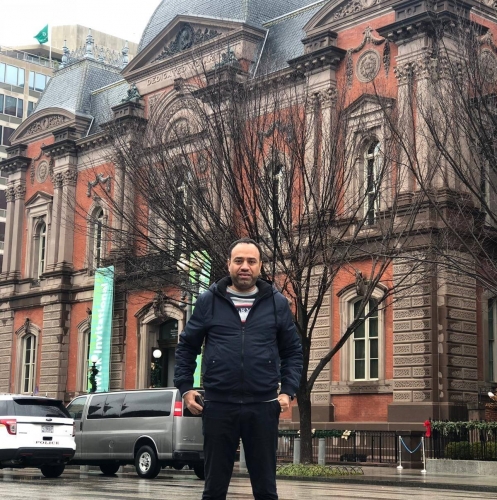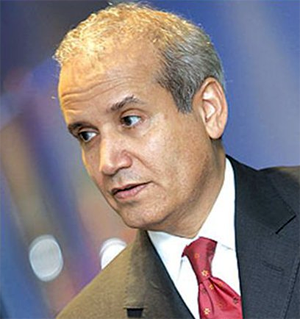It's Time to Take the Gloves Off Against Houthis and Iran's Islamic Revolutionary Guard
Washington's misplaced priorities in the Middle East over the last decade have left tens of millions exposed to the aggression of an Iranian-backed menace, the Houthis, who killed three civilian mariners this week in a missile strike on a cargo ship in the Red Sea. With Tehran's support, Houthi forces have launched near daily missile and drone attacks and committed acts of piracy and hostage taking since October that has disrupted the global economy and threatens wider war. It is critical that the U.S. move beyond the half-measures it has deployed, end the crisis, and restore stability.
Under normal circumstances, 12 percent of the world's seaborne trade travels through the Red Sea. But in recent months, maritime operators are avoiding the Rea Sea in its deteriorated state and opting to reach Europe or the Americas via Africa's Cape of Good Hope, adding approximately two weeks to their journeys. This is costly to consumers and businesses alike that are suffering some disrupted supply chains, but this challenge will pale in comparison to the crisis that will unfold if Iran and the Houthis are permitted to continue to escalate their attacks.
Unfortunately, President Joe Biden is demonstrating that the U.S. is capable but unwilling to secure freedom of navigation and safety in the Red Sea. While the U.S. has responded to Houthi aggression with airstrikes, and attacks have damaged or destroyed 93 percent of targets, the targets have totaled less than a third of the Houthis' offensive capabilities.
A much stronger response is required to eliminate the threat and deter both the Houthis and their Iranian commanders. The U.S. should sink the BEHSHAD, a U.S.-sanctioned spy ship operated by the Islamic Revolutionary Guard Corps (IRGC) to gather intelligence on the Houthis' behalf, as well as destroy all military and intelligence targets in Iran that support the Houthis, including IRGC sites and missile and drone bases. Doing so would send a clear message that Houthi attacks are unacceptable, sponsoring terrorism is costly, and the United States is both capable and willing to use overwhelming force to defend itself, its interests, and the interests of its allies.
Additionally, the Biden administration should be hitting not only Houthi but also IRGC targets on Yemeni territory. Hezbollah and the IRGC have advisors on the ground in Yemen, including Abdolreza Shahlaei, who runs IRGC operations in Yemen and who is subject to a Rewards for Justice bounty from the U.S. government. Shahlaei is complicit in the deaths of American soldiers and planned terror attacks on U.S. soil.
Of course, this will likely trigger Tehran's support system in Washington to drum up fear that the U.S. is risking war with Iran. But these arguments do not hold up to serious scrutiny. The reality is that Iran responds to impotence with aggression, and to strength with noise—nothing more.
In 1988, after Iranian mines ripped through the USS Samuel B. Roberts, the U.S. destroyed half of the Islamic Republic's naval fleet in eight hours. War did not follow, Iranian maritime provocations decreased, and in fact the episode contributed to the end of the Iran-Iraq War.
In 2020, the U.S. killed IRGC Quds Force Commander General Qassem Soleimani in a drone strike. Again, no war—because Iran knows that war with the U.S. would be the end of the regime.
We must not allow the conditions for such a war to fester. In fact, the only way to prevent a catastrophic regional war is to establish deterrence now. And that means aiming at the cause of the threat—the IRGC in Iran—rather than merely its Houthi symptoms. Iran and the Houthis must be made incapable of threatening the U.S. and its allies. Slow, piecemeal responses that fail to hold Iran accountable are straining the United States and its allies and making us collectively less secure. The president must recognize when to unleash a knockout blow.
Mark D. Wallace served as U.S. ambassador to the United Nations for management and reform during the administration of President George W. Bush. He is CEO of United Against Nuclear Iran and the Counter Extremism Project. Edmund Fitton-Brown served the United Kingdom as ambassador to the Republic of Yemen and was coordinator of the United Nations Security Council's ISIL/Al-Qaida/Taliban Sanctions Monitoring Team from January 2018 to July 2022. He is a senior advisor to the Counter Extremism Project.





